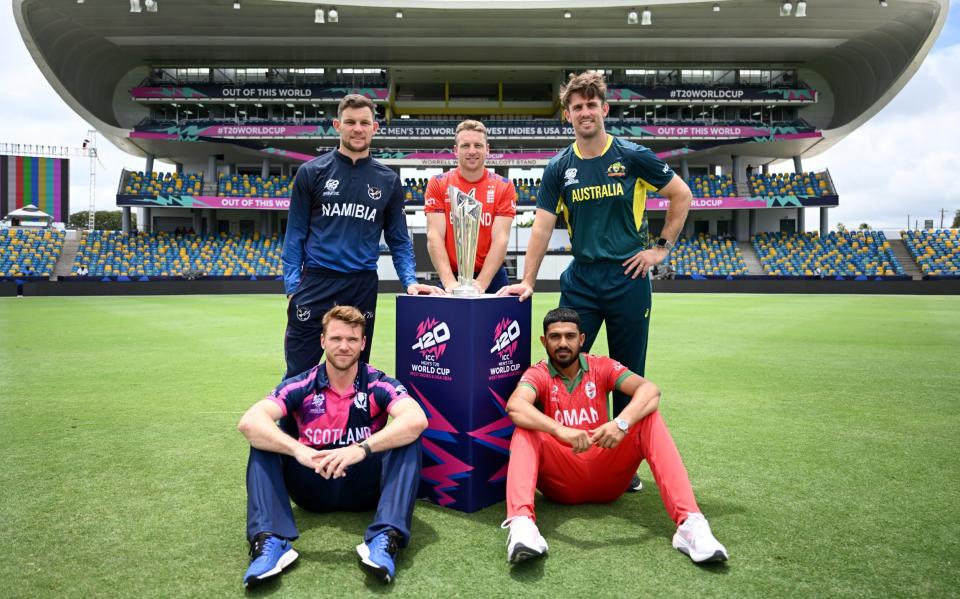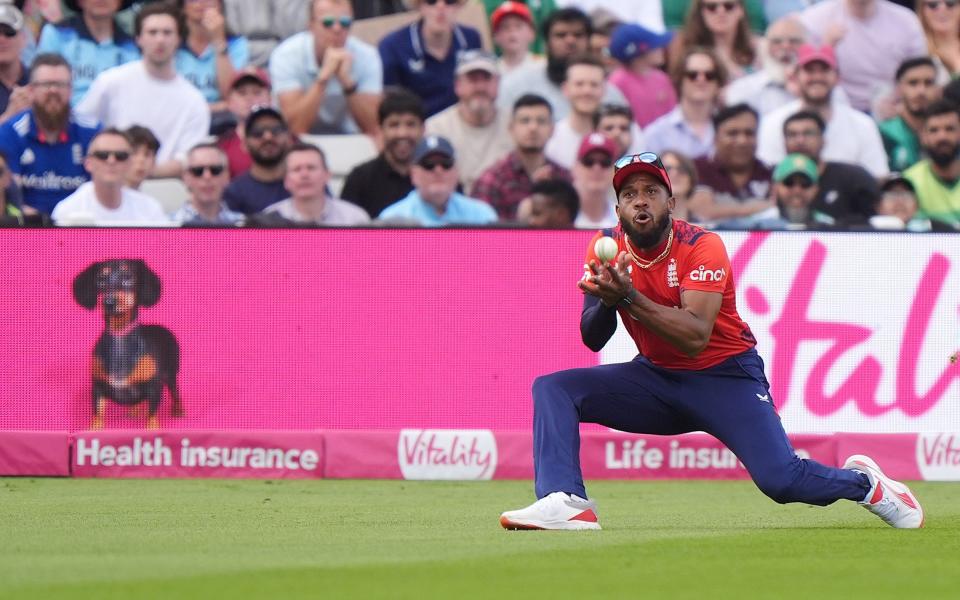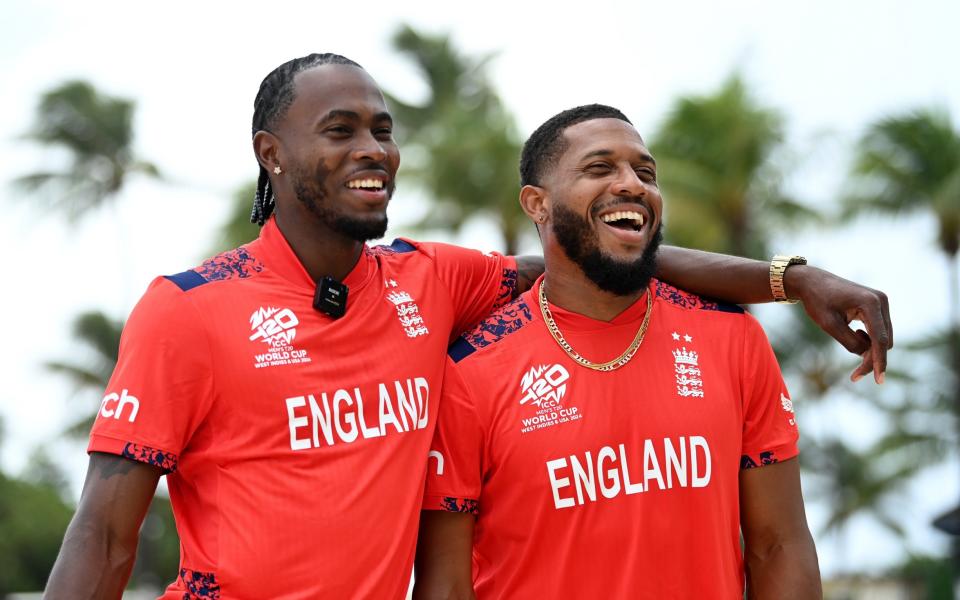“I knew it wouldn’t be all beer and skittles,” says Matthew Mott, with a certain dry understatement. In his two years as England manager, Mott has seen the best and worst of the job.
Within six months of his appointment, in May 2022, Mott lifted the Twenty20 World Cup. A year later, England’s poor one-day international World Cup defence, which floundered on the pitch while vacillating between different tactics, led to calls for his sacking.
“It’s been an interesting ride,” says Mott when we meet in a coffee shop in Cardiff, his hometown since moving from Queensland. “It’s like an oven, this job.
“I knew it would be difficult. But I thought it was a great challenge. And whatever happens in the next two, three, four, five years, I will never regret taking this on.”
While leading former players quickly find themselves in many coaching jobs, Mott has taken a more circuitous route to becoming an international head coach. During a solid first-class career with Queensland he maintained a keen interest in coaching. After retiring, Mott worked as head coach of New South Wales and as an assistant in the Indian Premier League before a brilliant spell with Australian women led to his appointment in England.


“I never thought I would play this role,” explains Mott, who turned 50 last year. “I am incredibly grateful for what I have. I started out as a cricketer and if you had told me that I would be playing the role I am in now, I wouldn’t have believed you.”
The journey gives Mott some perspective when faced with criticism of the kind he faced during England’s torrid ODI World Cup defense in India last year.
“I know a lot of people say this, but I don’t actually read it,” he says. “What I do get is family members and people coming up to me and saying, ‘What about that?’ or whatever. When I took this job, I made a promise to my family. I knew what awaited me. I said to them all, ‘Please don’t bother reading things because there will be some nice things said, but some people will criticize me on various points, whether I have done the right thing or not.’ ”
Seven months on from the ODI World Cup, Mott believes England have learned from the tournament in several key ways. Following on from the appointment of Kieron Pollard as a consultant to provide local knowledge at the T20 World Cup, something England lacked in India, David Young has been appointed as team psychologist, repeating the role he held in 2019.
Young has already started working with Mott and Jos Buttler to design a one-page document to flesh out England’s approach. The emphasis is on “freedom,” being governed by the needs of the team and removing emotion from decision-making in a notoriously volatile format.


When the squad met before the Pakistan series, Buttler chaired a team meeting. All players spoke briefly about their role within the team.
“Each player worked to clarify their role and articulate it to the group,” Mott explains. “They are encouraged and supported to stick to their individual strengths.
“If they have any doubts about what the situation requires, we want them to choose the most positive option. It’s nothing earth-shattering new, but it fits in with our mantra of getting better every day and continuing to evolve as a group.
“Every team will say: ‘We want our players to be free’. The language in each team will be slightly different. That’s what we need to make sure we’re on the same page – so that our message is consistent, but also allows each individual to express themselves in a very different way.
“So what we need to do is make sure we share that common language with every player when things aren’t going well. How do we speak to them? How do we make sure our words don’t hold them back next time? How do we ensure that it is actually a reinforcement? “Mate, you’re doing the right thing today, you just got out. Fine’. Or: ‘You tried to work out a broad plan, but you didn’t quite understand it. It was still the right plan.”
It is an admission that England deviated from their philosophy too quickly in India. For example, while the England team was based on batting depth, David Willey hit a highest score of seven against South Africa in Mumbai for only the second time in his eight-year ODI career.
“If it hasn’t happened yet, you have to have the courage to say, ‘We still have to make sure we stand up for that,’” Mott says. “I think there were times when we might not have done that.”


Mott sees Young as essential to creating a culture without fear.
“We saw this potential as a real game-changer in terms of having that traveling role in different tournaments like a World Cup – especially on the front end, to basically manage when we come back to us as a group, with someone who is very skilled in building those fast connections.
“It is important to ensure continuity of our messaging and ensure we are the franchise of choice. So getting our ducks in a row when it comes to when players come back, this is what we do, this is what we stand for.
Mott hopes Young will also give players tools to deal with online criticism, which seemed to distract from the India team. “Sometimes, when you get negative press, or when you get a lot of questions about decision-making, you can get a little inside yourself.
“I worry about people who read things like that. It’s a genuine concern. I’ve seen players get caught up in it, and even support staff get caught up in it – not just in this job, but elsewhere. It distracts you from your core beliefs.”
Despite the tumult of the ODI World Cup, Mott says the selection for the T20 World Cup was quite simple. Chris Jordan’s recall was backed by his death-bowling skills, his increased pace in recent months and his batting ability from No. 8. Mott believes the increase in points in the IPL will have an impact on the World Cup, even though that are not the case. be properly replicated.


“If you have players who come in at eight or nine, they can still hurt teams, which is very important at the back. It actually frees up your entire batting unit, as we have seen in the IPL.”
IPL sides benefited from the impact sub-rule, which essentially allowed them to pick teams of twelve. England was limited to eleven; Ben Stokes’ absence robs the team of an all-rounder who could bat in the top five. “There is no such thing as perfect team balance – unless you have some real all-rounders, you always have to give something up.”
This time England will be reluctant to compromise their striking power. “Our batting is on par with any team in the world,” Mott said. England’s top four – Buttler, Phil Salt, Will Jacks and Jonny Bairstow – are the biggest source of optimism ahead of the World Cup.
Yet England’s prospects have also improved with the return of Jofra Archer. England have no one better to deliver on Mott’s belief that rising scores have made taking early wickets even more important: “Our job for our frontline bowlers is basically to go in and disrupt the opposition by taking wickets. “


The Caribbean will be Archer’s first global event for England since his stunning bow at the 2019 World Cup. Should England reach the final, they will play nine matches in 25 days; Archer certainly won’t be in everyone.
“We have to manage how he is doing and sometimes also make an unpopular decision: if he is feeling 100 percent, we may still have to withdraw him for a match. But that’s all done by the sports science team. They give us the information and then we have to judge whether it is worth the risk.”


Only halfway through his four-year contract with England did Mott accept that a poor campaign would put his job in jeopardy. “Not everyone can walk away at the end and say, ‘Thank you very much.’ Going into this World Cup, I know there will be a lot of speculation if the team doesn’t do well.
“Every coach who goes into that World Cup, every captain goes in with that pressure of expectation – and expectation is a privilege. Not everyone understands that and you don’t always like it.”


Rather than worrying about the possible consequences of failure, Mott prefers to focus on ensuring he stays true to himself in the West Indies.
“I love the game of cricket, but it doesn’t define me. My family is important to me, my friends are incredibly important. And so I can tackle everything that happens around cricket. It’s a game I grew up loving. I still have that passion.
“You can get inside yourself and feel a little sorry for yourself when we’re not performing at our best. But the reality is that we are doing something that we absolutely love. We are judged on our results: if they are good, everyone gets a pat on the back; if not, we’ll deal with a little grief.
“There is something that keeps pushing you to come back and ride the lightning of international cricket. I have no end date. I just try to enjoy it for as long as possible and try to get the best out of the players and staff around me. Then when it’s my time, it’s my time.”